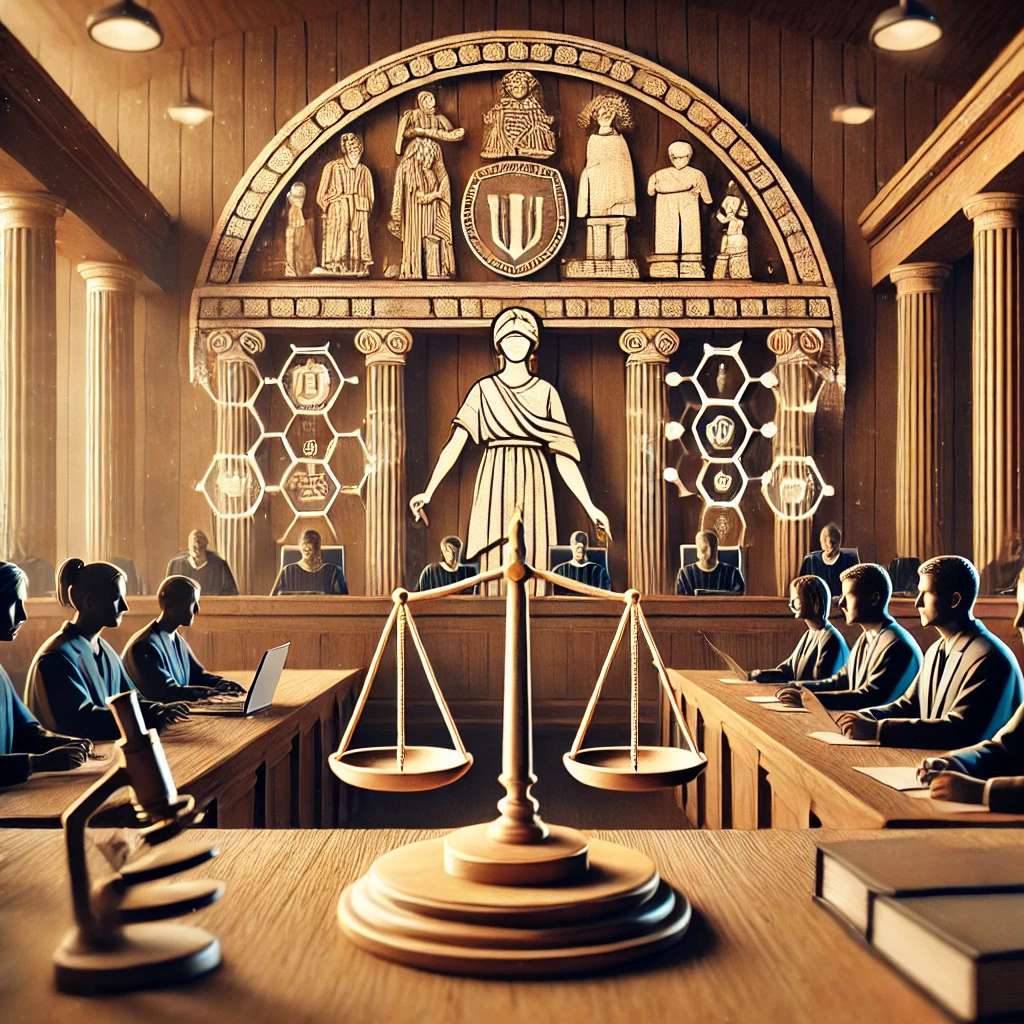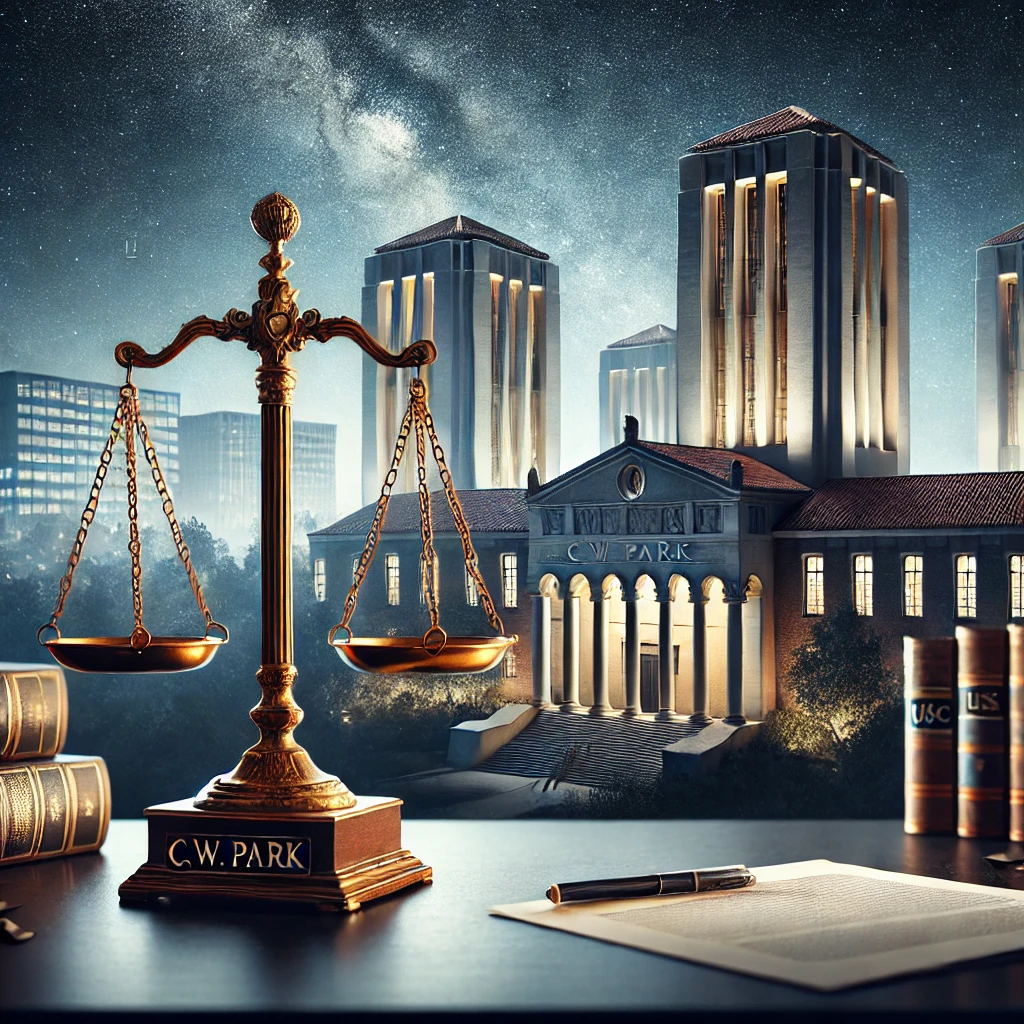Overview of c.w. park usc lawsuit:
Demands with colleges and universities aren’t typically thought of as a dynamical pair when considering schools such as University of Southern California (USC). But it serves as a warning that conflict may occur anywhere, even in the academic community, as seen by the involvement of eminent scholars like c.w. park usc lawsuit in judicial battles. In this in-depth discussion, we’ll examine the nuances of legal matters in higher education through the use of a fictitious case in which c.w. park usc lawsuit are parties to a lawsuit. Academic disputes frequently have far-reaching effects on the university, students, especially staff being performed, regardless they are concerning intellectual property, contracts for employment, or research funds.
Who is c.w. park usc lawsuit?
Understanding c.w. park usc lawsuit history is crucial before digging into the complaint. Park, a well-known professor at the Marshall School of Business and the University of Southern California (USC), is renowned for his knowledge of marketing tactics, branding, & customer behavior. He has made a substantial contribution towards the discipline that has been featured in many demanding journals. Because of the way his work frequently connects academic study with real-world marketing applications, he is in high demand in academic circles as well as in business settings.
What, therefore, might have led to this illustrious person becoming embroiled in legal proceedings with USC?
The Imaginary Case: Intellectual Property Conflict:
Let us consider the following hypothetical situation: a case involving intellectual property (IP) litigation. Intellectual property conflicts in academic contexts frequently emerge from the commercialization of university-developed research or technologies. In this fictitious instance, c.w. park usc lawsuit might have created a ground-breaking study on marketing or a highly lucrative company plan. Company USC may assert ownership of the intellectual property in accordance with regular university contracts that provide the university with rights to any research created by faculty members while they are on staff.
This is when things could become unclear: C.W. Park may contend that the investigation in question was carried out under an agreement that gives USC no ownership rights to the material it generated separately, or without the use of university assets. At that point, the litigation can intensify as both sides compete for ownership of the potentially profitable research.

c.w. park usc lawsuit
Academic Independence against Institutional Agreements:
The fine line that separates intellectual independence from organizational agreements lies at the center of numerous litigation concerning university instructors. Scholars such as C.W. Park frequently do ground-breaking research with substantial commercial potential. At the other hand, universities contend that they should hold all or a portion of the generated proprietary information because they offer the setting, funding, and assistance that make this kind of study possible.
In this imagined scenario, the primary questions would be because c.w. park usc lawsuit worked for USC outside the confines of his job and, if so, because USC has a right to the intellectual property. In response, C.W. Park would argue that academic freedom gives him complete control over his creative output—especially if he can demonstrate that the study was conducted independently and with his own funds.
In such a scenario, it is probable that all parties would provide copious amounts of documentation, such as job contracts, financing sources, and schedules for the research.
Agreements on Staffing and Conflicts in Higher Education:
The conditions of a position are important factors in many disputes involving academics. Professorial contracts, which include provisions about proprietary information, research responsibilities, and non-compete agreements, are frequently executed by new hires at universities. The specifics of C.W. Park’s employment agreement with USC may be the main focus of the litigation.
In the event that proprietary information is at issue in the litigation, the contract will probably be reviewed for any unclear or ambiguous language. Was the university’s ownership of any study that c.w. park usc lawsuit undertook expressly stated in his contract? Or was there some other way for him to keep the rights to his creations? Such agreements frequently allow for comprehension, and the particular language of the contract may determine how the case turns out.
Longevity and job stability may potentially play a role in the litigation. Should c.w. park usc lawsuit hold tenure, the legal dispute may assume a completely distinct aspect, since tenured professors are typically subject to a greater standard of proof for their termination or disciplinary action by universities.
Legal History of Academic Litigation:
An examination of analogous situations that have transpired in educational settings can be useful in gaining insight into the possible course of the hypothetical c.w. park usc lawsuit. Intellectual property, contract issues, and liberty in academia are major reasons for litigation to arise between colleges and teachers.
In one well-known instance, Stanford University v. Roche Molecular Devices, Inc., it turned out that an academic at Stanford University had rights to an innovation created while he was employed, despite Stanford’s assertion of property. In terms of government financed investigation, university agreements, and private contributions, the case brought to light the complexities associated with ownership rights.
Such historical precedents could be quite important in deciding how things turn out in our hypothetical situation. The legal ownership of its intellectual property may become even more complex, including not only USC but maybe outside groups as well, if C.W. Park’s study was supported by the federal government or included contributions from outside parties.
Research Finance: A Maze of Intricacies
Funding for research is still another crucial component of any academic litigation. Significant research colleges such as USC frequently award funding to their professors for research purposes from public and commercial sectors. These funds have their own guidelines on sharing research and proprietary rights.
In this fictitious litigation, c.w. park usc lawsuit would contend that since his study was supported by sources other than USC, any intellectual property rights the university could have over it are nullified. On the other hand, if the study was supported by a funding from the government, laws from the US may control the handling of intellectual property and may take precedence over any agreements made with the university.
Organizations that received money from outside parties may also join the lawsuit and assert their own ownership rights regarding the intellectual property. As other parties enter the picture, each with distinct contracts and stakes in the outcome, the legal maze may grow even more.

c.w. park usc lawsuit
Possible Results and Consequences:
This potential lawsuit may go in a number of ways, each having ramifications for C.W. Park and USC. Should the court rule in favor of USC, it may establish a precedent that fortifies university claims to faculty research, thus restricting academic liberty and imagination. Conversely, if the court rules against C.W. Park, faculty members may be able to claim greater authority over the rights to their ideas, such could result in contract negotiations for jobs throughout the academic community.
A case of this kind would also affect students and educators more broadly. A more assertive university policy about ownership of faculty research may deter academics from taking on innovative projects or working with non-profit companies. On the other hand, greater control over work by academics could encourage innovative thinking and entrepreneurial behavior in higher education by giving researchers more latitude to market their discoveries.
Public Opinion and the Function of Credibility:
In any well-publicized legal case, the general public is one element that can’t be disregarded. Notwithstanding the resolution of the lawsuit, C.W. Park’s outstanding track record in academia might be harmed by a legal conflict with a significant university such as USC. USC, which takes great pride in being an innovator in research and innovation, is comparable. Because they frequently highlight internal rules that aren’t in the best interests of learners, instructors, or the public, faculty-related challenges can be an impossible PR challenge for colleges.
Both c.w. park usc lawsuit would probably launch media campaigns to defend their reputations in this hypothetical situation. They might also make public declarations and possibly consult with outside legal experts. The way the public views the litigation may have an impact on how it turns out, especially if there is a lot of media attention or social media campaigns supporting one side.
Last Words:
Despite being an imaginary case, the C.W. Park USC lawsuit presents significant issues regarding property rights, freedom of academia, and the nuanced interactions between educational settings and their faculty. The laws regulating these interactions will be more crucial as long as educational groups keep pushing the limits of creativity and discovery.
These kinds of lawsuits, actual or imagined, have the ability to establish significant decisions which impact academic research in the future. Not only may they affect labor agreements, but they can also reshape the way trademarks is managed and shape future directions for scholarship in academia.
Tensions and difficulties that arise in contemporary academic contexts are exemplified by the hypothetical litigation between c.w. park usc lawsuit. Academic legal disputes are expected to persist as universities, teachers, and outside funders continue to negotiate this intricate and changing terrain, whether the disputes center on intellectual property rights or the freedom to investigate them.















